Hebrew Meditations (score & parts) - OB/STG3
Composer: Kesselman, Lee R.
Publisher: TrevCo
Edition: 71628
$24.00
Hebrew Meditations
for oboe, violin, viola, and cello
by Lee R. Kesselman - American composer
for the Metropolis Oboe Quartet
ABOUT THE MUSIC:
Hebrew Meditations
These three character pieces reflect different aspects of Jewish spirituality. The first, Song, is merely an abstract meditation without a textual reference, a moment of lyrical beauty. The second, Zichronam, means ‘memories.’ It is meant to evoke those who have passed. It could be loved ones, martyrs, or anyone who is remembered. The Hebrew expression, “zichronam livracha,”, often abbreviated, “z”l”, means “May their memory be for a blessing.” It is traditional, in Judaism, when mentioning the name of someone who has died, to say, “My parents, may their memory be for a blessing, had three sons.” Dayenu, the third movement, means “it would have been enough, or, it would have been sufficient.” It is a theme-and-variations on a Hebrew Passover song of the same title. The song is a long litany (15 verses!) of a series of kindnesses that God performed for the Jewish people during and after the Exodus from Egypt:
“If He had taken us out of Egypt and not made judgements on them; dayenu.
If He had made judgments on them and had not judged their gods; dayenu.
If He had split the Red Sea for us and had not taken us through it onto dry land; dayenu.”
…and so forth. Traditionally, the song is sung at the end of the Passover Seder, after much ceremony, food, merry-making and wine-drinking. To say that the song often gets rowdy would be an understatement. The prayer itself is at least 1000 years old. And like the Hebrew song itself, this set of variations is meant to be a rather incessant ‘song cootie’ which goes on long enough – dayenu! LRK

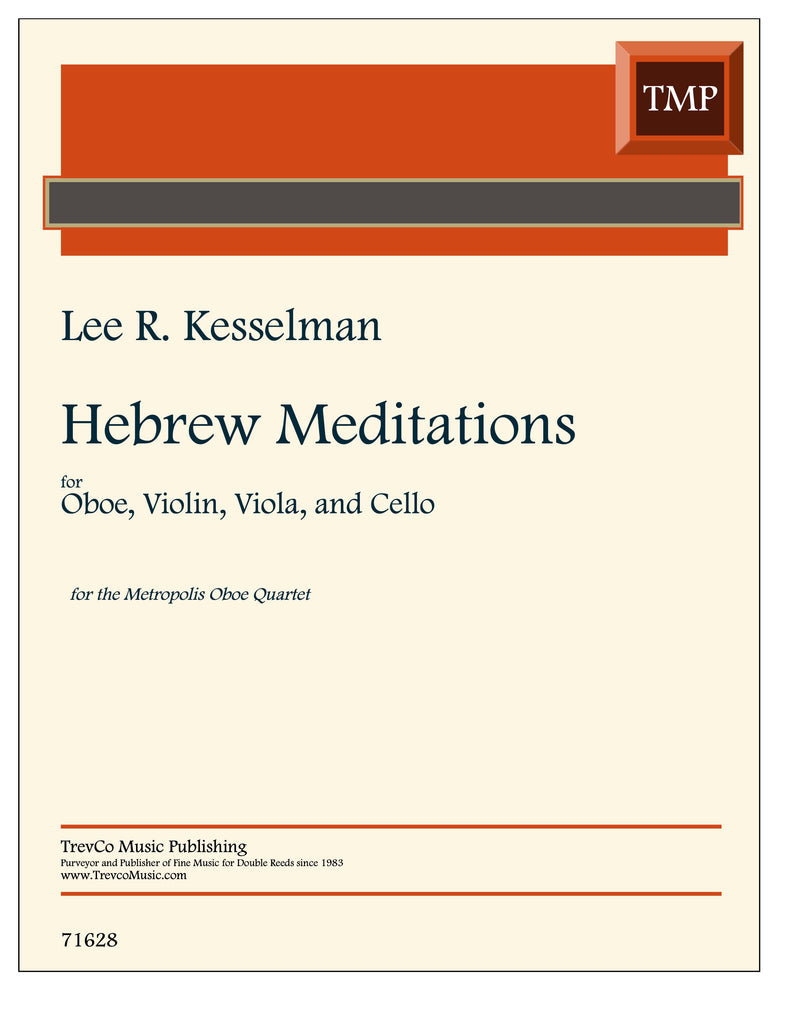
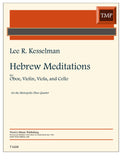
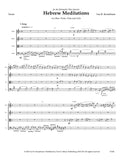
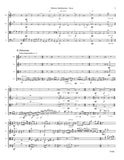
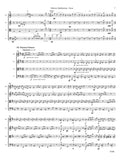
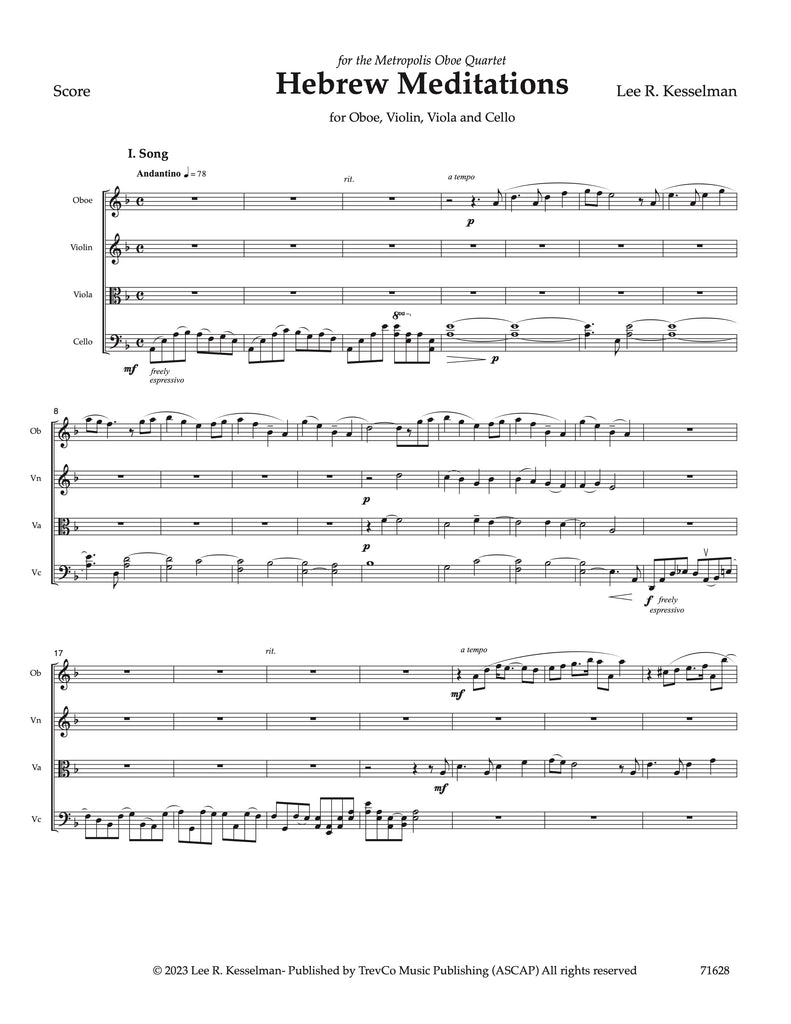
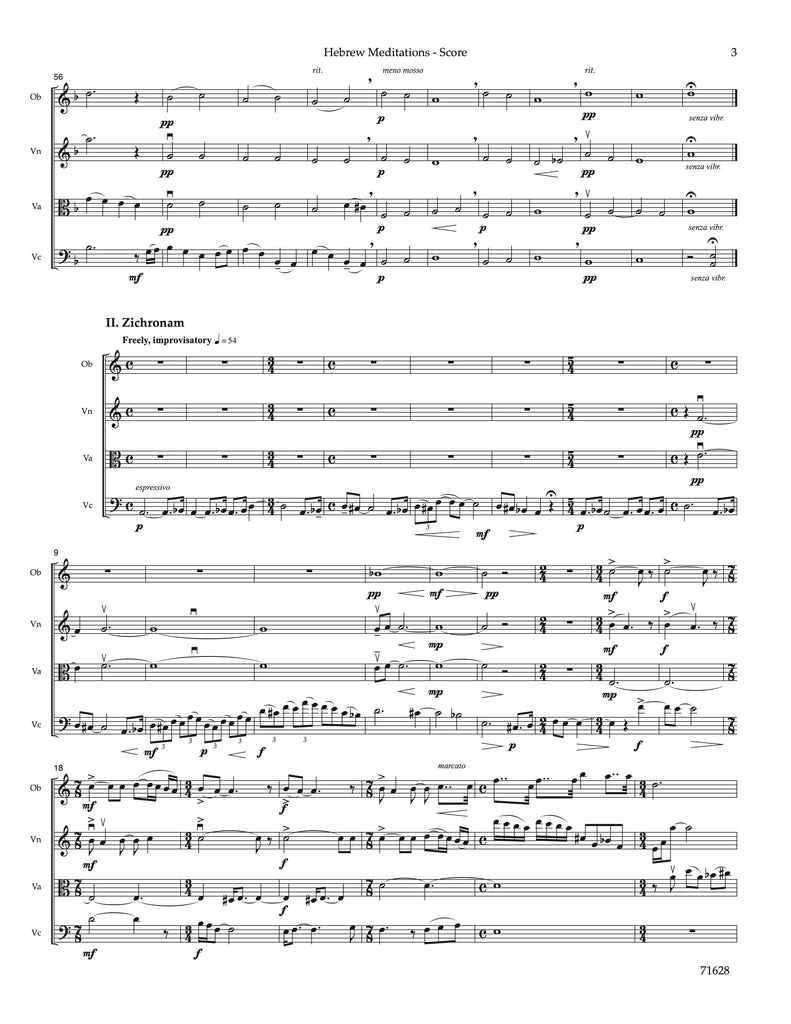
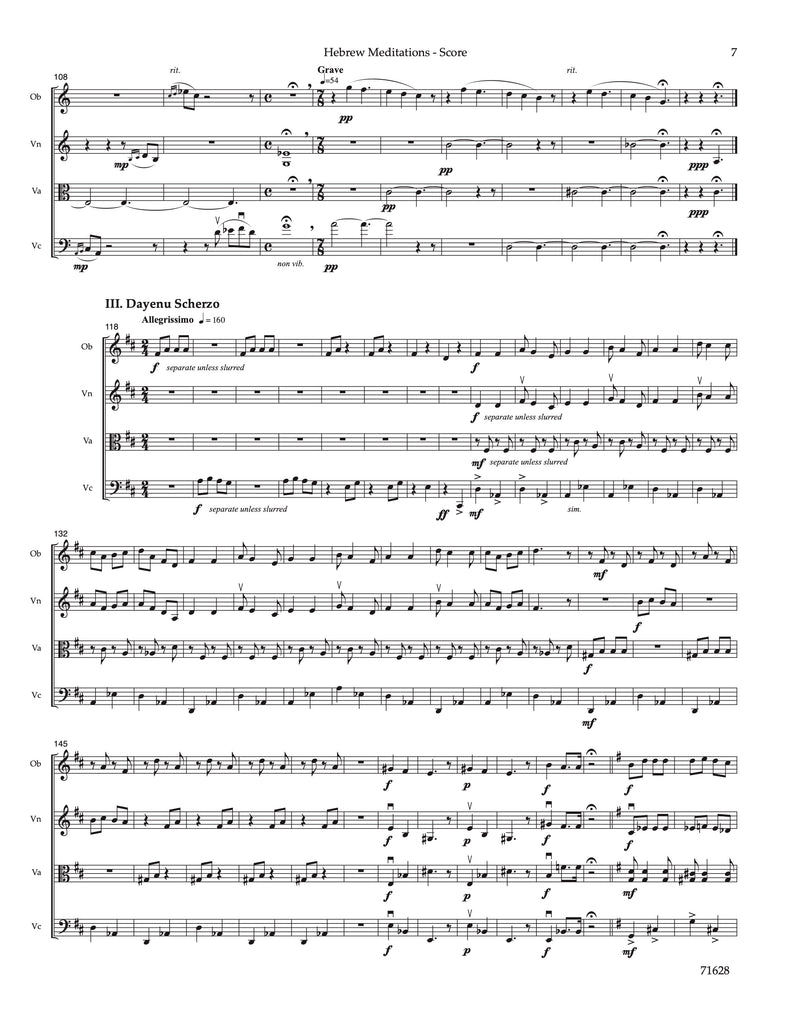
Share this item: